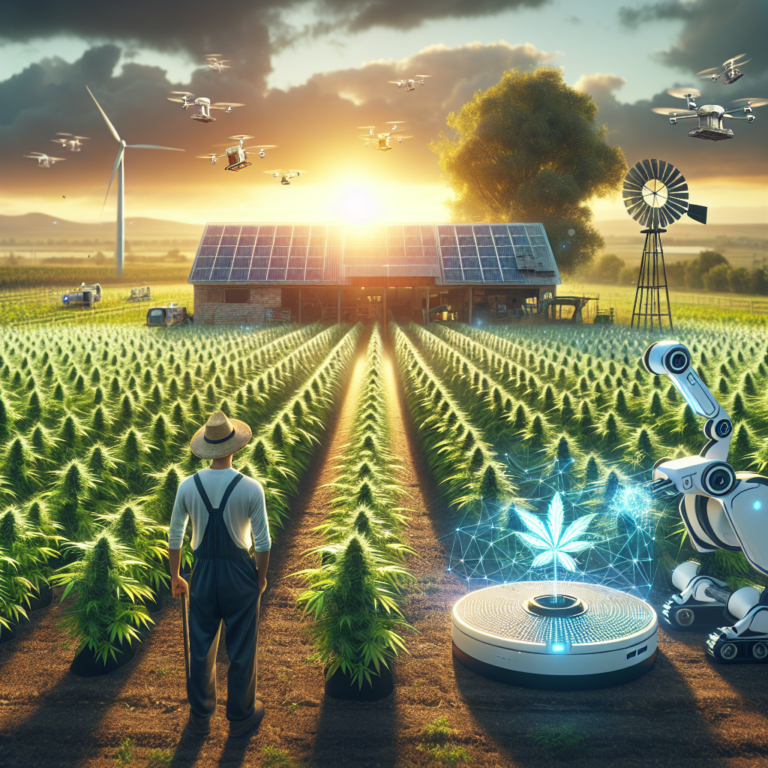
Introduction
Farming has been a vital part of human civilization for thousands of years, providing sustenance and resources for communities around the world. With the advancements in technology and increasing awareness of sustainable practices, the future of farming is constantly evolving. One crop that is changing the game in the agricultural industry is hemp.
What is Hemp?
Hemp, also known as industrial hemp, is a versatile plant from the Cannabis sativa species. Unlike its close relative, marijuana, hemp contains very low levels of THC, the psychoactive compound that produces a “high.” Instead, hemp is valued for its fibrous stalks, nutritious seeds, and various industrial uses.
The Benefits of Growing Hemp
Growing hemp offers a multitude of benefits for farmers, consumers, and the environment. Some of the key advantages include:
- Sustainability: Hemp is a highly sustainable crop that requires minimal water, pesticides, and fertilizers to thrive. It can be grown in a variety of climates and soil types, making it a versatile option for farmers.
- Carbon Sequestration: Hemp plants have the ability to sequester carbon dioxide from the atmosphere, helping to reduce greenhouse gas emissions and combat climate change.
- Biodiversity: Hemp cultivation promotes biodiversity by providing habitat for beneficial insects and wildlife, contributing to overall ecosystem health.
- Economic Opportunities: The growing demand for hemp products, such as textiles, CBD oil, and biofuels, presents numerous economic opportunities for farmers and businesses in the agricultural sector.
The Future of Hemp Farming
As the legal and social barriers surrounding hemp cultivation continue to dissipate, the future of hemp farming looks promising. With advancements in breeding techniques, cultivation practices, and processing technologies, hemp has the potential to revolutionize the agricultural industry in the following ways:
- Improved Varieties: Plant breeders are developing high-yielding hemp varieties with enhanced disease resistance, fiber quality, and cannabinoid content to meet the diverse needs of consumers.
- Precision Agriculture: The adoption of precision agriculture technologies, such as drones, sensors, and data analytics, allows farmers to optimize crop management practices and maximize yields.
- The development of innovative hemp-based products, such as bioplastics, building materials, and food supplements, expands the market potential for hemp and creates new revenue streams for farmers.
- Sustainable Practices: Hemp farming can serve as a model for sustainable agriculture by promoting soil health, water conservation, and biodiversity conservation through regenerative farming practices.
Conclusion
The future of farming is intrinsically linked to the cultivation of sustainable crops like hemp. As we strive to address pressing environmental and social issues, hemp farming offers a pathway towards a more resilient and regenerative agricultural system. By embracing the potential of hemp and supporting policies that enable its widespread adoption, we can shape a brighter future for farmers, consumers, and the planet.
FAQs
1. Is hemp the same as marijuana?
No, hemp and marijuana are different varieties of the Cannabis sativa plant. Hemp contains very low levels of THC, the psychoactive compound found in marijuana, making it non-intoxicating and suitable for industrial use.
2. What are some common uses for hemp?
Hemp can be used to produce a wide range of products, including textiles, paper, biofuels, food supplements, and building materials. It is also a source of CBD oil, which has gained popularity for its potential health benefits.
3. Is hemp farming legal in all countries?
The legal status of hemp farming varies by country and region. In many places, hemp cultivation is regulated and permitted for industrial purposes, whereas marijuana cultivation remains prohibited. It is important to research and comply with local laws and regulations regarding hemp cultivation.